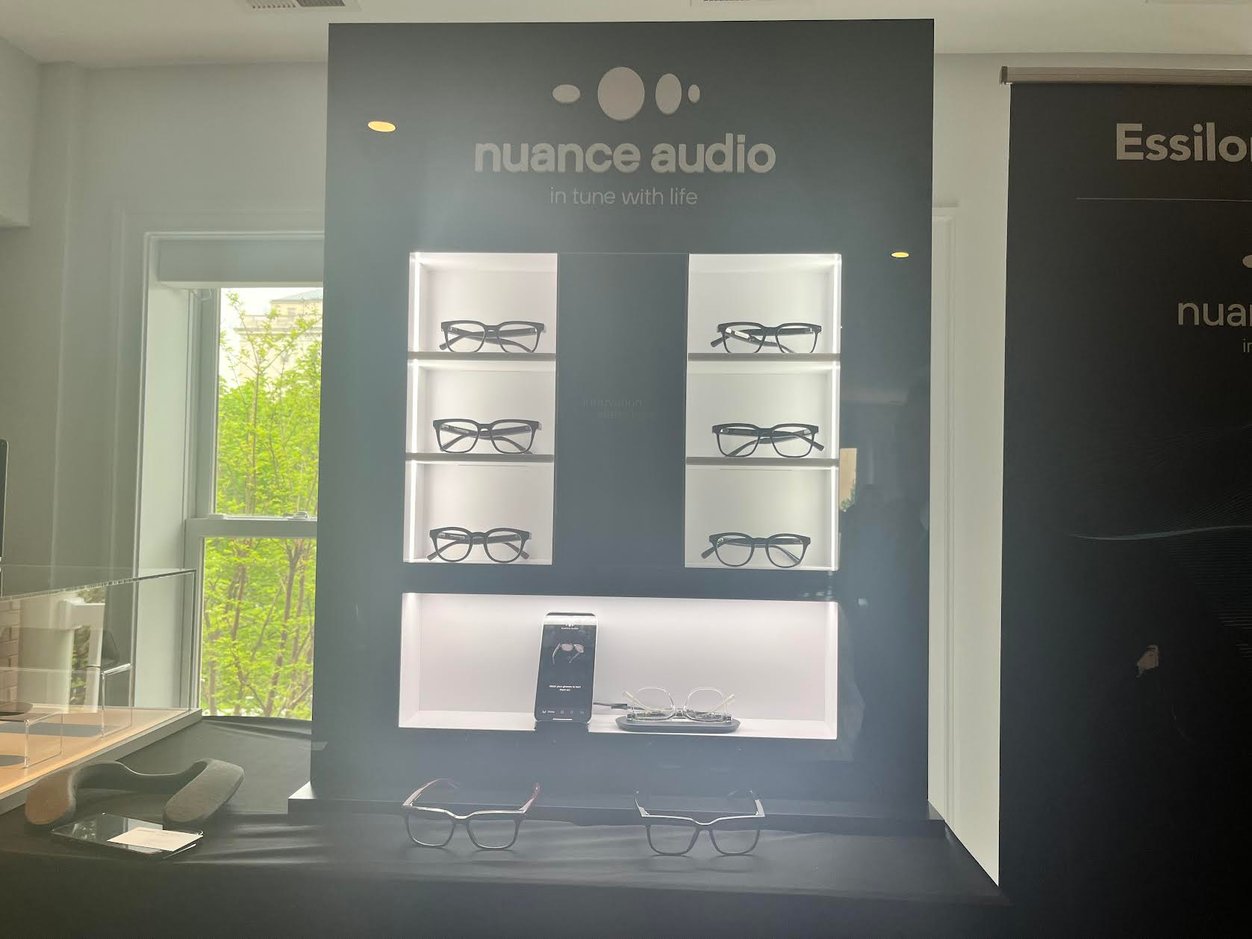lobbying
CES organizer gathers speed in health tech
Late last week I dropped by Washington's annual "CES on the Hill", a smaller scale, schmoozier version of the Las Vegas showcase organizer by the Consumer Technology Association — this event intends to expose lawmakers and staffers to cutting-edge products. Four of this year's exhibitors touched on health tech, including Dexcom with a demo of its continuous glucose monitor, and EssilorLuxottica, showing off eyeglasses equipped with audio-enhancing technology, marketed as a solution for hearing loss. I tried on the glasses, which reorient the audio enhancement according to where the wearer is looking. (It's a cool feature that certainly helps in a noisy crowd, but can't vouch for how helpful it would be for someone with hearing loss.) The company said it's not yet available on any market, but they're expecting it to hit US shelves by the end of the year.


(Essilor Luxottica's booth, pictured above. The audio product, Nuance, is unrelated to Microsoft's medical documentation subsidiary.)
CTA's digital health vice president René Quashie told me the trade group sees growing interest among health tech companies eager to influence policy, especially on establishing data privacy standards and removing barriers to telehealth, among other issues.
Indeed, it's Dexcom's first year at CES on the Hill, having just joined CTA this fall. Global PR director James McIntosh told me the company is especially interested in expanding access and reimbursement for continuous glucose monitors, in addition to AI standards for health care, and potentially reducing its waste including by using electronic instructions instead of printed copies, as it's currently required to distribute. Just last month, the company got the green light from the FDA for the first over-the-counter continuous glucose monitor.
Cybersecurity
Change Healthcare: It gets worse, somehow
Yesterday UnitedHealth announced that the stolen files from February's Change Healthcare cyberattack include protected health information and "could cover a substantial proportion of people in America," my health tech colleague Brittany Trang tells us.
It'll likely take months for UnitedHealth to identify and notify affected people; the company said it'll make the notifications on behalf of providers, assuaging concerns from groups such as the American Hospital Association.
Addressing allegations that the stolen patient data was up for sale on the dark web, UnitedHealth said 22 screenshots, some of which contained sensitive information from the stolen files, were "posted for about a week on the dark web by a malicious threat actor," but that no more leaks have occurred.
In the meantime, UnitedHealth stood up a website and call center for information and free credit monitoring and identity theft protections for two years. Separately, our colleagues over at Bloomberg confirmed that UnitedHealth did indeed pay the ransom "as part of the company's commitment to do all it could to protect patient data from disclosure."
Telehealth
Inside new Joint Commission, NCQA standards
Accreditation body the Joint Commission is announcing a new standard for virtual care that it plans to launch on July 1, and the National Committee for Quality Assurance has said its own standards will be unveiled later that month, my colleague Katie Palmer writes today.
"We want to elevate best practices to the top, call out quality when we see it, and help other organizations to create really lasting and quality systems for the delivery of virtual care," said Claire Mendelson, an NCQA product manager who's worked on its virtual care program.
"[A]s the use of telehealth has rapidly expanded into new health care settings and specialties, we did identify the need to create a new program that provides updated, streamlined standards,"the Joint Commission's Tina Cordero said.
These standards will include requirements for credentialing medication management, and leadership structure, among other areas. Read more from Katie.
Is chronic care telehealth's golden opportunity?
STAT's chronic disease reporter Isabella Cueto's latest, deeply reported story explores the myriad ways virtual care could be a boon for chronic disease patients whose conditions make it all the more difficult to get care in-person. And, unsurprisingly, there's a growing crop of startups ready to capitalize on that opportunity.
People experiencing fatigue or exhaustion, for instance, can preserve energy by doing a video call instead of trekking to the doctor's office; avoiding in-person exams could offer crucial protection for patients taking immunosuppressive drugs. Read more from Isa.


No comments